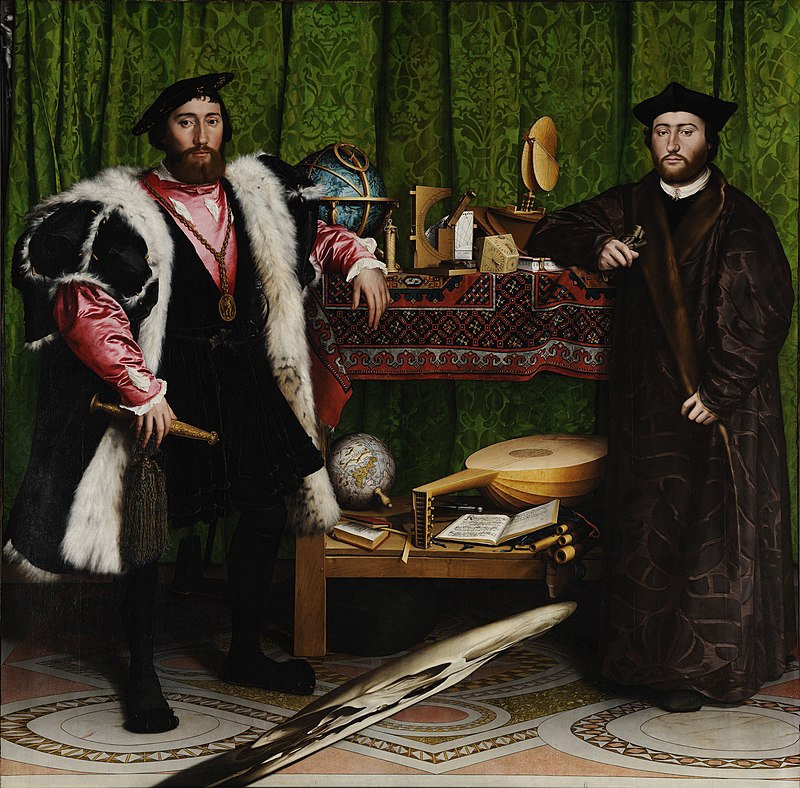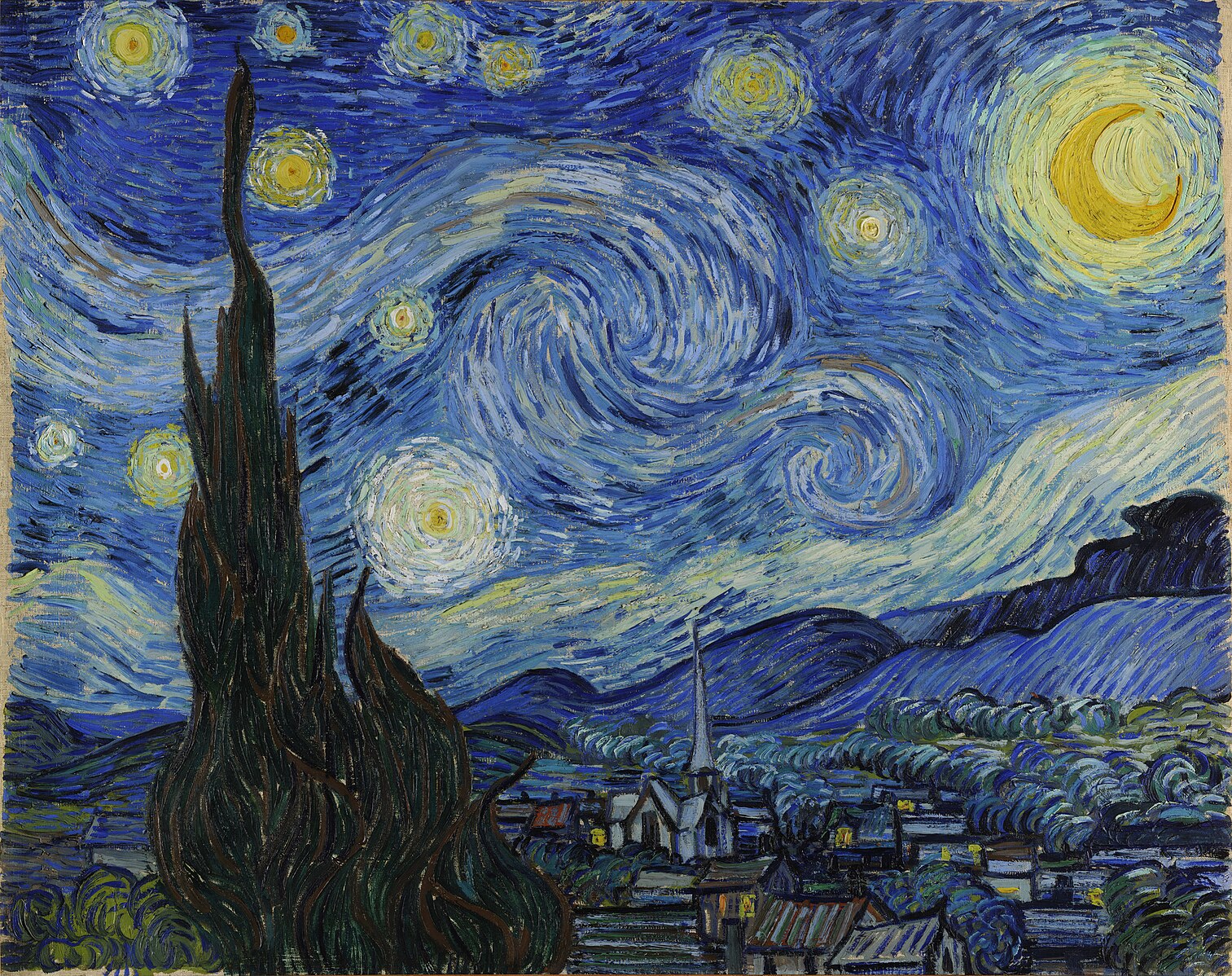Acting Aesthetically Well in the Zhuangzi
-
 Larry Blomme
Larry Blomme - 22 Jan, 2025

Acting Well Aesthetically
In each of our lives, acting well in the domains that we act in is a noble goal. This has been recognized for millennia - Aristotle argued that since acting is the point of living, acting well is the point of living well, which most people want to do. When it comes to acting well in the realm of aesthetics - beauty and good art - we can find ourselves confused at what it means to act aesthetically well. To appreciate beauty and to seek it out seems an obvious route. At the very least, we ought to act to experience aesthetic goodness, and perhaps even produce it ourselves. Yet let’s say that producing and experiencing beauty falls into two domains. I will focus on experiencing it, because this presents today’s puzzle.
In each person, we can say that there is an aesthetic faculty, and using it allows them to perceive the
aesthetic good. Let’s imagine an expert in Northern Renaissance art, who knows the works of the great northern
masters and finds them beautiful. His name will be … Ted.
Ted has trained his aesthetic faculties in the knowledge and appreciation of Northern Renaissance art, like this work,
The Ambassadors by Hans Holbein the Younger:

Let’s say that Ted lives in northern Germany, and is surrounded by works like these. We could call this Ted’s aesthetic context. An aesthetic context is just a realm or area in which beauty is defined by particular characteristics. For Ted, aesthetic beauty is determined by his Northern Renaissance aesthetic context, where realism, humanism, overt symbology, technical achievements in illustrating perspective, and more are what counts for beauty. If you look at The Ambassadors from the correct angle, the stretched gray skull-ish blob transforms into a perfectly illustrated skull - this is one of the many things that Ted would count as beautiful. Other features like the composition, use of colour, and the subjects being secular rather than religious each play a role in making this piece beautiful.
Other aesthetic contexts are possible. Of course, other people may look for beauty in other aesthetic contexts, but Ted
himself could possess the ability to switch contexts and appreciate other aesthetic goods. Ted might be a sommelier and
appreciate different complex notes in wine. For illustrative purposes, Ted might also be an expert in nineteenth-century
impressionism and expressionism, finding this work beautiful:

This painting, Starry Night by Vincent van Gogh, is beautiful in a different aesthetic context. No longer does the artist strive to be realistic, portraying a scene with accurate colour and perspective. Now, beauty is recognized in the flowing brushstrokes, the vibrant and expressive colour, and the unrealistic but emotive portrayal of the scenery. In this work, van Gogh conveys not what he sees, but how the landscape feels, and how he himself feels in his perception of it. The skull found in The Ambassadors would ruin this work, not add to it.
Back to Ted. Let’s say that Ted loves beauty - he loves the beauty of paintings, of good wine, good music, and anything else he can find beautiful. He wants to experience as much beauty as is possible in his lifetime. Ted also recognizes that to inhabit a particular aesthetic context takes work. Work to learn what counts as beautiful in a particular area. Work to learn the history of an aesthetic context, to be able to appreciate what makes each beautiful thing truly beautiful. Ted knows that he does not know what makes certain things beautiful. For example, he simply cannot stand heavy metal music, and he finds English shanties dull and tasteless. Yet he knows that these things are beautiful to a great many people, and that it is his lack of understanding rather than a lack of beauty in these contexts that explains this. Ted, like all of us, is faced with a decision: how can we experience as much beauty as possible in life?
The Options
It seems to Ted, and coincidentally also to me, that there are two options.
- Expand our horizons and familiarize ourselves with as many aesthetic contexts as possible
- Narrow in on one or a few aesthetic contexts and understand them completely
Let’s first consider option one. For Ted, as for many of us, this might involve a great deal of options. Ted could travel to the far reaches of the earth, learning local traditions, Maybe this would cure his shanty aversion!tunes , art, and just generally aesthetic contexts. Perhaps, we observe, this would be overly disruptive or prohibitively expensive. Instead, Ted could turn to the wonders of the internet (try it!) to learn nearly anything about any aesthetic context he could dream of. Ted could also use the library, or the telephone - it should suffice to say that Ted has any number of options to broaden his aesthetic horizons. By learning more aesthetic contexts, even to a rather shallow degree, Ted could start to see beauty in a great deal of places. Perhaps, though, Ted could never see the great depth of beauty in any one context, if he focuses so broadly on learning as great a variety as possible.
So, to option two. Perhaps Ted could specialize, learning as much as he could in any one aesthetic context before moving on to another. He could go to school, work in a field where he could experience as much of the particular beauty he pursues. Then, having spent his life deepening his understanding of the great beauty that can be achieved by mankind, he would have one or a few disciplines in which he completely understands the aesthetic context at issue in a few special cases.
The Ideal Aesthetic Agent in the Zhuangzi
In the Zhuangzi, the absolute wandering aesthetic agent is an ideal for acting aesthetically well. This presents, for us ordinary humans, two alternatives to prioritize: should we deeply develop one or a limited few aesthetic profiles, or should we strive to at least comprehend as many aesthetic profiles as possible? In other words, is specialization or generalization a better avenue toward acting well aesthetically? Ted aims to be the absolute wandering aesthetic agent. But he can’t. The absolute wandering means that the agent chooses both options but exceeds the realm of possibility - he finds all the beauty in every aesthetic context. As a limited human being, he can only be a local wandering aesthetic agent. He can only ever experience incomplete beauty in a finite number of contexts.
Since the Zhuangzi makes the ideal unachievable, it isn’t clear which option would get Ted closest to the ideal. Perhaps a shallower, broader focus would allow Ted to find beauty in more places. But perhaps a deep knowledge of a few arts would also allow Ted the joys of seeing parallels to the deepest nuances of beauty in as many places as possible. Perhaps Ted should try to reach a certain reasonable level of competence in as many contexts as he can.
I think that what Ted should do depends on a few other things about Ted that I haven’t invented yet. Does Ted want to be a generalist or does he want to specialize? Does he happen to be a savant or a genius in some context, where abandoning that context to learn other ones in a shallow way would be a waste? Does Ted have access to the internet or other learning resources like you and I do? I will not invent these details about Ted, because Ted is actually you. At least, he is supposed to represent you, and me, and anyone. But what Ted does is important. What he should do is a question that we should try to answer.
What Should Ted Do?
It seems clear that whatever Ted decides to do depends on the facts about him. If Ted is like most people who would read this post, then he is not an artistic genius, has access to a great many aesthetic contexts, and finds himself faced with this variety of contexts on a near-daily basis. In this case, to act in the ideal way as an aesthetic agent, Ted should almost certainly generalize, learning as much as he reasonably can about as many aesthetic contexts as he can. When he is faced with the choice between delving into expertise or growing in another competency, he would almost certainly be more like the absolute wondering agent if he were to grow in another competence.
But perhaps Ted is not like this. Perhaps Ted has a love for fine wines and a passion to learn about vintages that rivals even the greatest sommeliers in history. Perhaps he has an itch to cut off his own ear out of love and paint his soul onto a canvas in as many ways as there are dewdrops on the morning grass. Perhaps Ted does not like the internet, or does not have access to a huge variety of aesthetic contexts because he lives a more solitary life as the hermit-caretaker of a vast museum of marble statues. More relatably, perhaps Ted has a hyper-focused and passionate temperament and has always been a specialist in his field. In these cases, he would most certainly benefit from specializing as much as possible, but still in as many contexts as are accessible to him. In other words, as a specialist, Ted should focus on gaining deep expertise before moving on to another competence.
What Should You Do?
Wonderfully, you should do whatever is best! If you want to follow the Zhuangzi and strive toward becoming an absolute wandering aesthetic agent, you should choose to be a generalist or specialist depending on your life circumstances - just like Ted. A word of caution, however: you really ought to choose. Bumbling about or waffling will hinder your ability to succeed in either case, which would prevent you from acting as aesthetically well as possible. By taking a brief moment to consider your life and its relationship to beauty, you have the opportunity to set yourself down a path toward the aesthetic ideal.
This post is a response to a presentation on The Beauty of Grimacing Xishi: Aesthetic Value and Agency in the Zhuangzi by Dominic McIver Lopes and Davide Zappulli